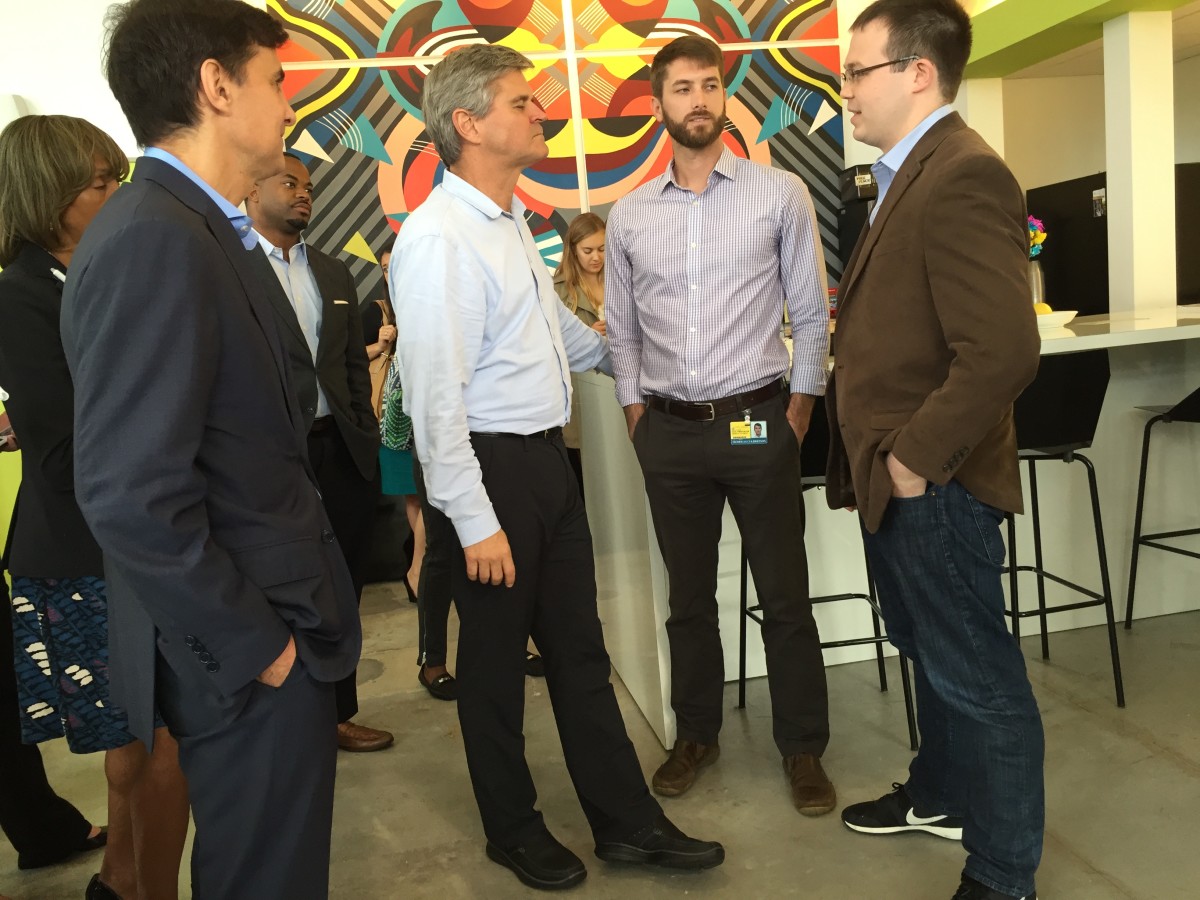After raising a seed round, building a team of 14 people in its Canton office and conducting a pair of pilots, Protenus is ready to build a real sales team in 2016.
“Ultimately, we know that selling is hugely time-consuming, it’s hugely specialized, and it’s something that we really wanted to invest in, along with our marketing side,” said cofounder Robert Lord, who’s been handling sales with his fellow cofounders.
The startup, which makes a cybersecurity software product that Lord called “an immune system” that protects healthcare patient data, is set to expand by about 10 employees this year following a $4 million Series A, Lord said. The hiring will be focused on scaling sales and marketing, but Lord said the company may also add to its product implementation team or deviate from specific job descriptions should the right person emerge.
“We also want to have enough dry powder that we can opportunistically get great candidates,” he said.
With the growing team, the company is also looking to relocate from its Broom Factory office space, where Lord is currently using the coffee table as a desk.
The funding round was led by North Dakota-based Arthur Ventures. Managing partner James Burgum praised Protenus for using “modern data analytics techniques not seen in today’s healthcare market.”
Israel/Illinois-based LionBird Venture Capital, Cognosante and Baltimore Angels also participated. As previously announced, the company also received investment from TEDCO’s Cybersecurity Investment Fund.
https://twitter.com/Protenus/status/650272673352810496
The growth plans follow two years of building out and testing the company’s product, which is designed to detect violations of the notoriously strict (and federally-mandated) healthcare privacy standards, such as the Health Insurance Portability and Accountability Act (HIPAA).
Lord and cofounder Nick Culbertson met in medical school at Johns Hopkins, where Lord said they took an interest in healthcare analytics topics that are “less talked about.” The startup was a member of DreamIt Health Baltimore’s 2014 accelerator class. With high-profile breaches at Anthem and other health companies, the potential for large-scale breaches has come more into focus since Protenus began.
One of the main security concerns in healthcare data privacy is the “insider threat.” Whether from employees nosing around or actively trying to steal info, “it’s really a hospital’s own workforce that is the greatest vulnerability in many ways,” Lord said. The Protenus system, which can be deployed locally in a computer’s system or on the cloud, is designed to send out specific alerts when records are accessed and prioritize the events that rank as the most suspicious.
While he’s proud of what they’ve done, Lord allows that the company still has a lot of work to do. But given their early growth we asked Lord about the process of building the product.
Here are a few more takeaways that other entrepreneurs may find useful:
1. Use local resources
The startup sits on two “pillars” of Baltimore tech’s strength areas: cybersecurity and healthcare. Lord said the product’s development is driven by the company’s team of data scientists, engineers and designers.
It’s equally evident that the startup’s growth has also been bolstered by the wider Baltimore community, where large communities with ties to both government and university partners already exist.
At events, they’ve chatted with Steve Case and investors at Beta City. Johns Hopkins’ healthcare system was an early customer. The company’s cofounders met Sage Growth Partners at DreamIt Health, and ended up working out of the consulting company’s office space. Last year, Sage Growth Partners helped establish a pilot for Protenus with the Maryland-D.C. healthcare data portal, CRISP. Lord said protecting interchanges of data between hospitals was a “slightly different application” than securing data inside hospitals, but they found it just as important to protect.
A pilot in the Inova Health System in Virginia and connections with investors also came in part through local referrals, Lord said.
“Nick and I wouldn’t have wanted to start or build this company in any other city,” he said.
2. Interview early
For Protenus, the process of talking to potential customers and getting feedback started early. “At the end of the day it was a lot of hitting the pavement, getting out there and talking to people,” Lord said.
They did a lot of interviews with compliance officers at hospitals before anything else, and tried to build a system that tailored to the pain points and needs they found, as well as what is already working. “If you spend a lot of time on customer discovery, you have less pivoting you have to do later,” Lord said. And when the product was out, they continued to iterate based on customer feedback.
3. Raise it when you need it
Instead of raising money as a box to check on the startup worksheet, Protenus’ mantra is “raise it when you know you need it,” Lord said. The Series A was all about growing the company, and investing in sales and marketing to do that following a build-out period. “We needed the capacity to scale,” he said.
And don’t be afraid to be choosy. “Ultimately, these are people you’re going to be working with in the long run,” he said.







